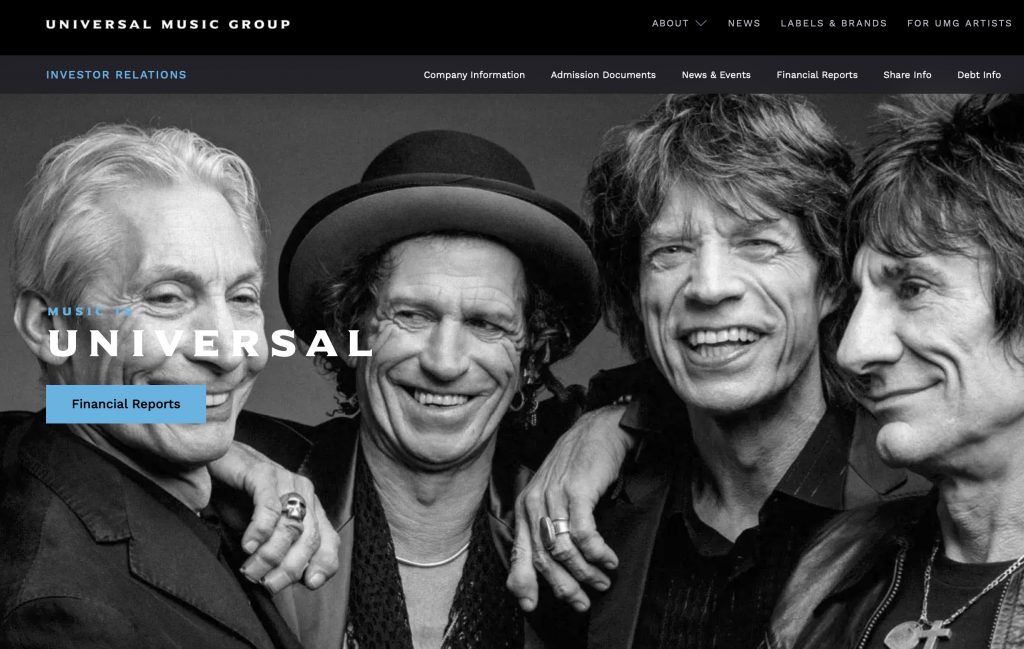On January 30, 2024, Universal Music Group (UMG) announced that its agreement with TikTok was about to expire. No longer would music by artists – ranging from Taylor Swift to The Rolling Stones; from Frank Sinatra to Frank Zappa – be made available through TikTok.
In a provocative response that accused UMG of promoting a “false narrative,” TikTok said that UMG had “put their own greed above the interests of their artists and songwriters,” lamenting that its platform helps UMG reach “well over a billion users that serves as a free promotional and discovery vehicle for their talent.” Harsh words.
Meanwhile, initial reactions from the artist community are mixed. According to a report by NBC News, one artist said “So my music is getting taken down in five hours but I have a new song coming out in nine hours.” Another said “Obviously, the whole reason I’m signed by Universal is because of my success on TikTok. I don’t know if they would have approached me otherwise.” A third artist said “I mean, it’s not like they are refusing to support my music… It’s fin. Everything’s fine.
Universal Music Group N.V. is the rights-holder for many recorded music labels, including Capitol Music Group, Decca, Deutsche Grammophon, EMI, Polydor, Verve and Virgin Music Group. The company has no affiliation with the Universal-branded companies owned by Comcast, including NBC Universal.

Open Letter
Also on January 30, UMG posted an open letter to artists and songwriters, rationalizing its decision not to extend its agreement with TikTok. “In our contract renewal discussions, we have been pressing them on three critical issues—appropriate compensation for our artists and songwriters, protecting human artists from the harmful effects of AI, and online safety for TikTok’s users.”
The Open Letter addressed all three points. UMG claimed that TikTok paid UMG artists at “a fraction of the rate that similarly situated social platforms pay,” and dismissed TikTok’s claim of value by saying TikTok accounted for about 1% of UMG revenue.
UMG claimed that TikTok has allowed its platform to be “flooded with AI-generated recordings—as well as developing tools to enable, promote and encourage AI music creation on the platform itself” that is “nothing short of sponsoring artist replacement by AI.”
To its third point, UMG said that “TikTok makes little effort to deal with … content on its platform that infringe our artists’ music and it has offered no meaningful solutions to the rising tide of content adjacency issues, let alone the tidal wave of hate speech, bigotry, bullying and harassment on the platform.”
UMG claimed that its attempts to engage TikTok in removing infringing content were met with indifference and then hostility; accusing TikTok of selectively removing the works of artists that UMG was trying to develop.
Further reading
An Open Letter to the artist and songwriter community – Why we must call time out on TikTok. Press release. January 30, 2024. Universal Music Group N.V.
Universal Music Group Agreement with TikTok to expire on January 31, 2024. Press release. January 30, 2024. Universal Music Group N.V.
TikTok statement in response to Universal Music Group. Blog post. January 30, 2024. TikTok Community. TikTok
What happens when you can’t use songs by Taylor Swift and other artists on TikTok? Users are starting to find out. Article. February 1, 2024. By Kalhan Rosenblatt. NBC News.
Why it matters
This case illuminates a classic conundrum: When should a rights-holder quietly allow infringing distribution for promotional purposes (which TikTok champions, to offset the value the rights-holder is losing as a result), and whose interest does the rights-holder hold dearest – the interests of its artists or its own? UMG’s Open Letter claims the latter.
But bottom line, social media is a major channel of distribution for unlicensed content. UMG has the right to protect its property from infringing use. Its content is king and TikTok has to wait in line and play nice.
It remains to be seen whether or not UMG calls for the enforcement of copyright infringement charges, if UMG content continues to appear on TikTok. Surely, UMG has tools in place to detect that.
Piracy Monitor takes UMG at face value and supports its assertion that it has “… overriding responsibility to our artists to fight for a new agreement under which they are appropriately compensated for their work, on a platform that respects human creativity, in an environment that is safe for all, and effectively moderated.”













